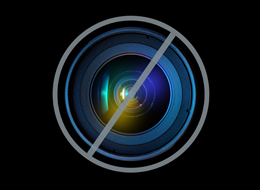Reposted from Huffington Post Politics

President Barack Obama expressed support of same-sex marriage Wednesday in an interview with ABC's Robin Roberts.
WASHINGTON -- President Barack Obama came to the decision that he personally supported same sex marriage early in 2012, top administration officials told reporters shortly after the president announced that support.
The plan had been to announce his position before the Democratic National Convention. But after Vice President Joseph Biden declared his support for marriage equality on Sunday, the issue touched off a political firestorm and the timeframe for Obama's announcement was expedited.
Those top officials, speaking on condition that they not be named or quoted, said that the president was not agitated about Biden's appearance on NBC's "Meet the Press." Instead, he decided that he had to make his position known sooner rather than later. The administration had knowledge of Biden's remarks after he taped his interview last Friday. By Tuesday morning, aides began putting a plan in motion.
The president would conduct an interview with ABC's Robin Roberts, during which he would explain how he had come to take the final step in an 18-month-long evolution of his stance on marriage equality.
The White House had wanted to break the news in such a setting from the get-go. Now, however, it had to be done rapidly and with some secrecy. On Monday, Press Secretary Jay Carney was peppered with an estimated 50 questions on Biden's statement, the most he had received on any one topic during a single briefing since the beginning of his tenure. By Tuesday, the White House had notified ABC that Obama wanted to do a sit-down. Aides were instructed not to tell a single outside stakeholder in the gay rights debate about the forthcoming announcement.
Speaking just minutes after portions of that interview were broadcast, senior administration officials took pains to stress that the president had made a personal and not a political decision to speak out. He had been moved, they said, by a fundraising trip he had made to New York shortly after that state legalized gay marriage, during which he thought to himself how he would have voted on the issue as a state legislator. He also marveled at the fact that his daughters, who had friends with gay parents, could never conceive of gay marriage being controversial.
Taking counsel from a small group of advisers -- six to seven people in total -- Obama outlined how, exactly, he would break the news.
The senior administration officials declined to say whether the president would now push for gay marriage to be part of the Democratic Party's platform at the convention. They also said they were not changing positions on an Executive Order that would ban discrimination on the basis of sexual orientation against federal contractors. The president has said he would not sign that order.
As for the politics of the matter, the senior administration officials cautioned that it was too early to read into the electoral fallout. They noted that public opinion had changed faster on this issue than on any other they had followed in their own political careers. And they noted that presumptive GOP presidential nominee Mitt Romney's viewpoint –- that the Constitution should contain an amendment asserting that marriage is between a man and a woman -- was quite unpopular.
There were, however, reasons why even party officials were insisting, not all that long ago, that the president needed to put this off until after the election. There is concern that support for gay marriage will drive away voters in some conservative-leaning swing states. There is even more concern that Republican operatives can and will use the issue to go after the president.
"The question is, is there a risk?" a prominent Democratic Party official who requested anonymity told The Huffington Post just days ago. "It is not nationwide [polling] we are talking about. We are talking about Virginia, North Carolina and other swing states. And we are talking about, would Karl Rove and his team stoop to using horribly grotesque and hateful tactics ... and would that peel off 10,000 votes?"